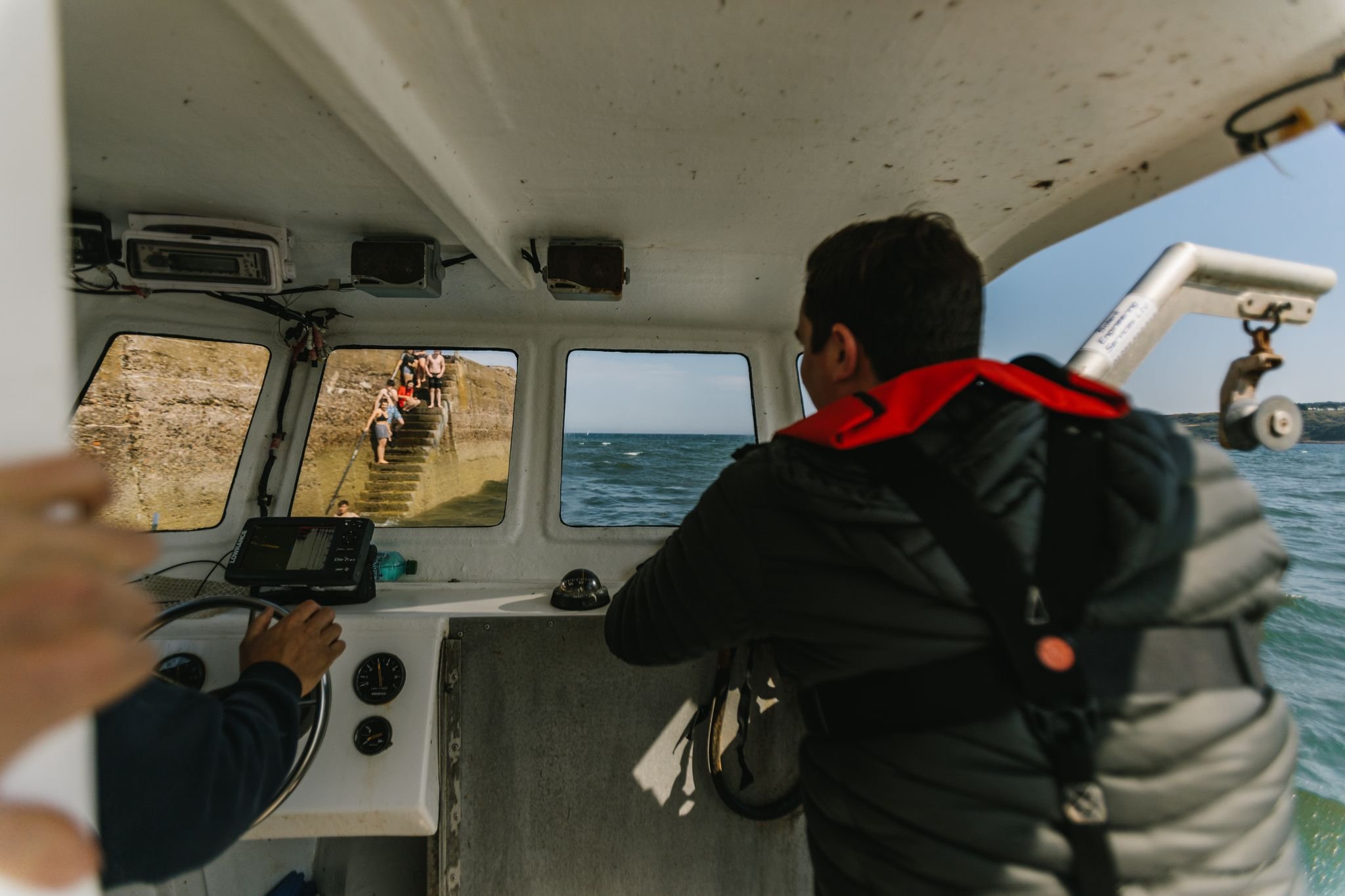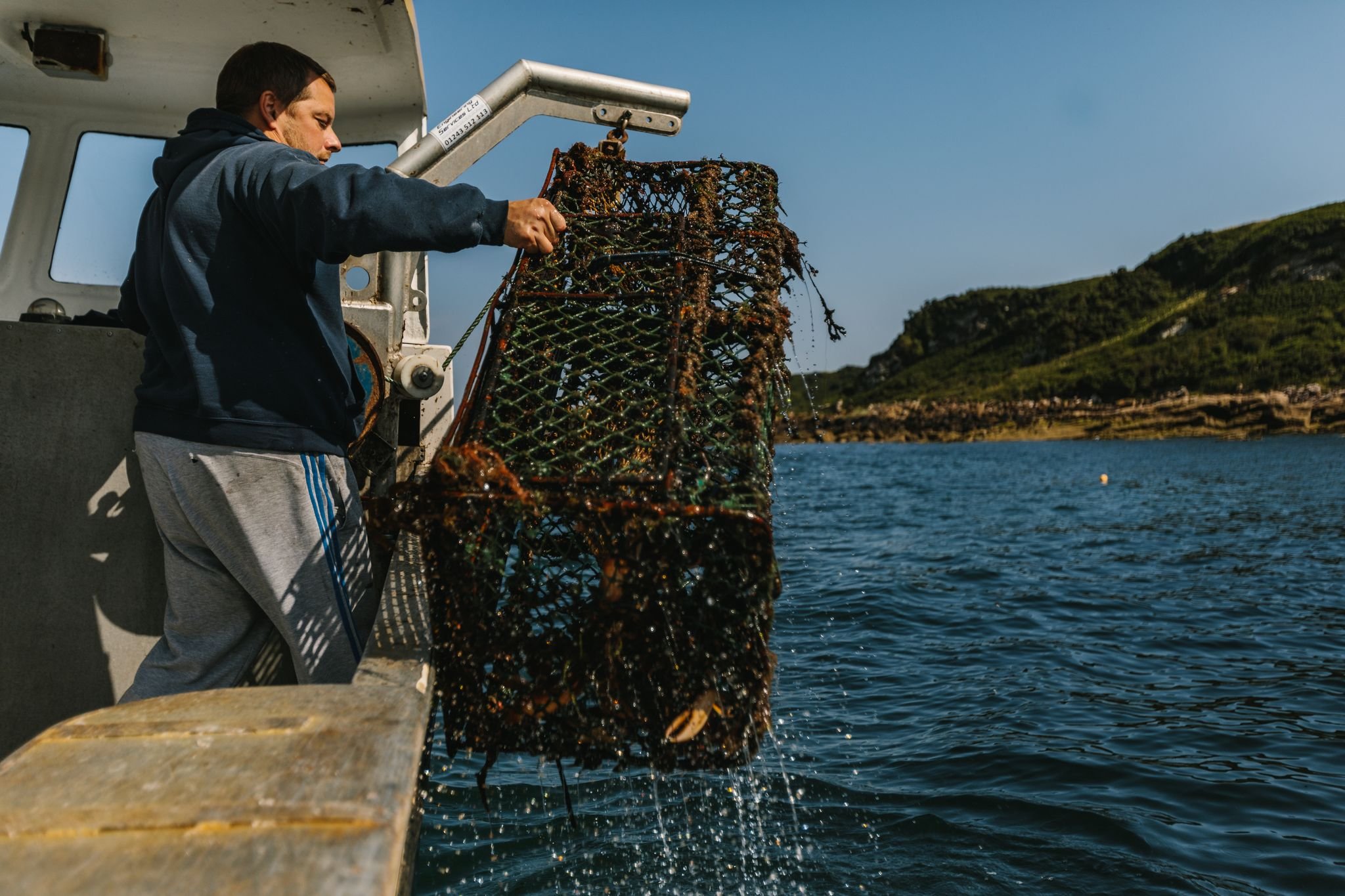Seven reasons why Scottish seafood is so sustainable
Sustainability is so key in Scottish fishing.
Scottish seafood is renowned for its quality, flavour, and sustainability. It is no wonder that many enthusiasts worldwide love the planet's finest seafood. But what makes Scottish seafood so sustainable? In this blog post, we will explore seven reasons why Scottish seafood is so good for the planet.
Scottish fisheries operate within strict regulations.
One of the critical reasons Scottish seafood is so sustainable is due to the strict regulations in place. The Scottish government has implemented various policies and regulations to ensure that fishing practices in Scotland are sustainable. For example, the government has set quotas for the different species of fish that can be caught. This ensures that fish populations are not overexploited. The government have also banned destructive fishing practices, such as bottom trawling, which can harm both the seabed and the aquatic population.
We have well-managed fish stocks.
Another reason Scottish seafood is sustainable is that Scotland has well-managed fish stocks. The Scottish government regularly monitors fish populations to ensure they are not overfished. This means that only a certain number of fish can be caught each year, and any excess must be thrown back into the sea. This helps to maintain healthy fish populations and ensures that the fishery is sustainable for the long term.
Scottish fisheries use selective fishing methods.
Scottish fisheries also use selective fishing methods, which reduce the amount of bycatch. Bycatch refers to non-target species that are caught accidentally during fishing operations. Particular fishing methods, such as using nets with larger mesh sizes or using creels, can reduce the amount of bycatch. This helps to minimise the impact of fishing on the marine environment and ensures that only the target species are caught.
Scotland's seafood industry is committed to sustainability.
The Scottish seafood industry is committed to sustainability. Many Scottish seafood companies have implemented sustainable practices, such as reducing waste and using eco-friendly packaging. Some companies have also obtained certification from sustainable seafood organisations, such as the Marine Stewardship Council (MSC), which verifies that their seafood is sustainably sourced. At Dulse, we are committed to being a zero-waste restaurant. This means absolutely everything that comes through our kitchen is utilised until its last possible use. Take our ever-famous sustainable butter, for example. This
Scottish aquaculture is environmentally friendly.
Aquaculture, referring to the farming of aquatic organisms, is an integral part of Scotland's seafood industry. Scottish aquaculture is environmentally friendly as it uses low-impact farming methods, such as closed containment systems, to reduce the impact of farming on the marine environment. Scottish aquaculture also uses sustainable feed sources, such as plant-based feeds, to reduce the reliance on wild fish as a feed source.
Scotland's seafood industry supports local communities.
The Scottish seafood industry supports local communities. Many coastal communities in Scotland rely on the seafood industry for their livelihoods. By supporting sustainable fishing practices, the seafood industry can ensure that these communities have a sustainable source of income for the long term. Not only do these communities thrive from their local industry, but they also eat it too, supporting these fantastic local businesses. This ensures that the seafood doesn't have a long way to travel, which takes us on to our next point…
It doesn't often have too far to travel
With such an abundance of delicious seafood right on our doorstep, it is no wonder that restaurants up and down the country opt to cook up domestic offerings. We only use the finest ingredients here at Dulse, which means local, high-quality seafood reaches our kitchen. Take our lobster, for example, that is caught metres from our sister venue, Haar Restaurant. This is done right in St. Andrews Bay using the same local suppliers that the Dean Banks Group have worked with for many years.
Scottish seafood is sustainable due to the strict regulations in place, well-managed fish stocks, selective fishing methods, the industry's commitment to sustainability, environmentally friendly aquaculture, and support for local communities. These factors ensure that the seafood industry in Scotland is sustainable for the long term, and that we can continue to enjoy delicious Scottish seafood for years to come.
If you want to try some of the most delicious, sustainable and creative seafood dishes available in the country, head to our reservations page and book your table today.




